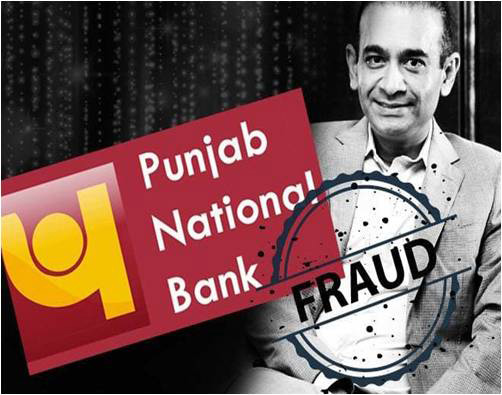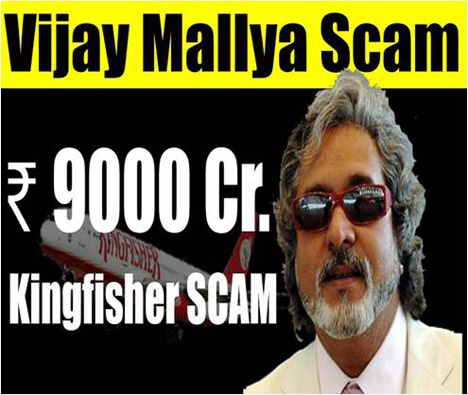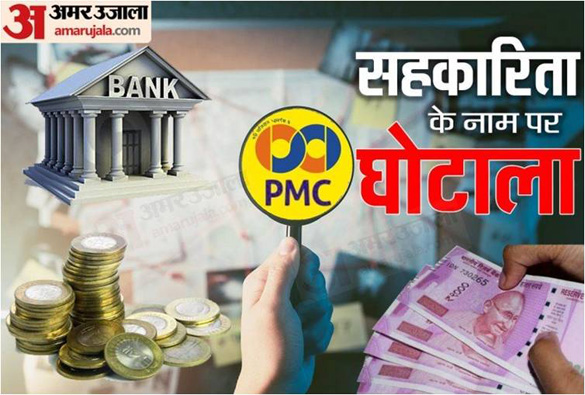Disclaimer: Previously published in the annual magazine “Artharth” by Finomina, The Finance Club of IIM Udaipur
For the economy to function, people need to have faith in its infrastructure. One of the bedrocks of the economy are banks, and people are quickly starting to lose faith in them due to their behaviour ranging from poor risk assessment to downright fraudulent activities. Indian banks have recently come under fire for such poor judgment & illegal behaviour.
India’s largest bank had to write off bad loans worth Rs.76, 600 crores of 220 defaulters. Since March 2019, SBI has declared that an amount of Rs. 37,700 is unrecoverable. In the last few years, Indian banks have lost Rs.1.76 lakh crore because of 416 defaulters. There has been a trend of defaults amongst Indian Banks of losing money to bad loans.
A list of few banks losing money:
| Banks | Defaulters | Amount (Crores) |
| SBI | 253 | ₹1,14,319.04 |
| PNB | 106 | ₹36,062.68 |
| IDBI | 71 | ₹26,219.19 |
| Canara Bank | 70 | ₹27,382.26 |
| Bank of India | 59 | ₹13,944.89 |
| Corporation Bank | 52 | ₹12,844.39 |
| Bank of Baroda | 46 | ₹10,308.38 |
| Central Bank of India | 49 | ₹13,625.78 |
| Axis Bank | 43 | ₹12,274.66 |
| ICICI | 37 | ₹17440.34 |
| Indian Overseas Bank | 33 | ₹10,454.12 |
Due to a few lousy defaulter’s public sector banks have lost nearly Rs. 1.07 lakh crore in bad debts. SBI & PNB have the highest amount of bad debts in the public sector, and IDBI bank has the highest bad debts in the private sector.

There has been a slew of businessmen who have employed unfair tactics and cheated banks out of thousands of crores. Businessmen such as Vijay Mallaya, who wilfully defaulted on an amount of Rs 9000 crores from 17 different banks, which was taken for Kingfisher Airlines,fled to Britain to avoid any legal charges. Similarly, the Nirav Modi defrauded PNB and Union Bank and then fled. After an investigation it was revealed that certain bank employees were hand in glove with the Nirav Modi and aided him in committing these crimes. The astonishing part of the scam was that it took place over seven years. Two PNB bank employees issued letter of undertaking to companies owned by Nirav Modi and co-conspirator Mehul Choksi. The total tally of that scam ballooned to an amount of Rs.11,400 crore. The damaging part of the scandal was the internal assistance that was provided by PNB.

These types of incidents affect public trust in institutions that makeup the entire system. A system cannot work if without people’s trust, and such crimes re-enforce biases against public institutions.
Corruption in banking institutions does not just take place on the lower levels of management. It could take place at the very top of the food chain. There former CEO and MD of ICICI Bank, Chanda Kochhar was investigated for a quid pro quo situation with Videocon. According to the allegations Videocon kicked back a sum of money into her husband’s company in exchange for approving loans. This was a major scandal for ICICI bank, who swiftly ousted Chanda Kochhar in favor of new management.

Recently the new revelation of PMC Bank also eroded the trust of the public in the banking system. The entire bank went under after it gave a loan worth Rs. 6500 crore to HDIL with having on Rs. 11000 crores in a deposit. Then it was revealed that the senior management had ties to HDIL and was benefiting with the loan provided to the company. The shutting down of a bank seriously affected public morale and trust. People are at risk of losing their entire life savings. This bank closure has affected lakhs of people across the country. The inability of the government to assure the people about their money does not help the situation. The government’s insistence on making India a digital economy does not help when people really do not trust if their money in the bank is safe.
Another private sector bank which is in hot water is Yes Bank. A bank that was generally perceived as a safe bet has lost a lot of money in bad loans due to high risk strategy. The bank was one of the most trusted in the business. Yes bank was known for giving loans to corporates. This strategy had served then well in the past. But there were some major drawbacks to giving money to a few corporates. Since the company wasn’t well diversified in its risks since they provided big loans to a few individuals. The small number defaulters had a major impact on the book of the bank. The bank since had the biggest drop in their share price. With share price reaching as low as Rs. 40 in recent times.
These events tend to erode the public’s trust. But other than banks they another culprit was the government. The 2016 demonetization had a huge impact on the public trust towards banks. Overnight the government banned the Rs.500 and Rs.1000 notes which caused a widespread panic amongst Indian citizens. Due to the demonetization banks had cash crunch since there was a limited supply of new notes. People stood in front of ATM’s and banks to get their hands on some of their hard-earned money. But the banks were unable to provide a satisfactory amount of cash due to a short supply. This move by the government was to encourage people to keep more money in the bank. But this move devolved into a major scandal with both the government and banks being blamed for the chaos. These events seriously damaged the perception of banks.

Eroding faith in banks is not just a phenomenon unique to India. Developed countries such as America have gone through a major financial crisis which in part took place because of greedy bankers. Banks provided subprime loans and often used predatory lending practices to sell loans to individuals with low incomes who wanted to buy a house. Banks were aware of the fact that these individuals would not be able to pay back the loans so they thought they would get a house in the bargain. These loans had adjustable rates which meant banks had the option to balloon up these rates to get more money out of the individuals. Borrowers started to default on their payments which put more houses back into the market. This caused the once high housing prices to plummet. Lenders here got stuck with bad loans. Financial institutions sold risky investment opportunities like collateral debt obligations which were essentially a set of loans put together being swapped by different financial institutions for money. Major financial institutions like Lehman Brothers declared bankruptcy and other financial institutions were forced into a merger. The government stepped in to curb the crisis and issued bailout money to many of these institutions. People lost their life savings and houses while very few people became very rich. One of the main reasons for the crisis was lack of regulation and government oversight.
People today have becomeskeptical of banks. These institutions have acted poorly and in some cases with malice. The emergence of new technology such as cryptocurrency and blockchain where all the transactions could be centralized and could be viewed by all involved is gaining some traction. Certain institutions have started accepting them as a legitimate currency and an opportunity to stay outside the banking system. Banking institutions need to see this as a warning to mend their ways as they could be eliminated and replaced with a new type of institution which provides far more transparency and accountability could be far more trustworthy than banks.
About the Author:

Kanaad is a management student at IIM Udaipur and a member of Finomina. With prior experience in the media industry by working for a television network. A voracious reader of books with specific interests in philosophy, with love for movies & TV shows. You can connect with him on LinkedIn
